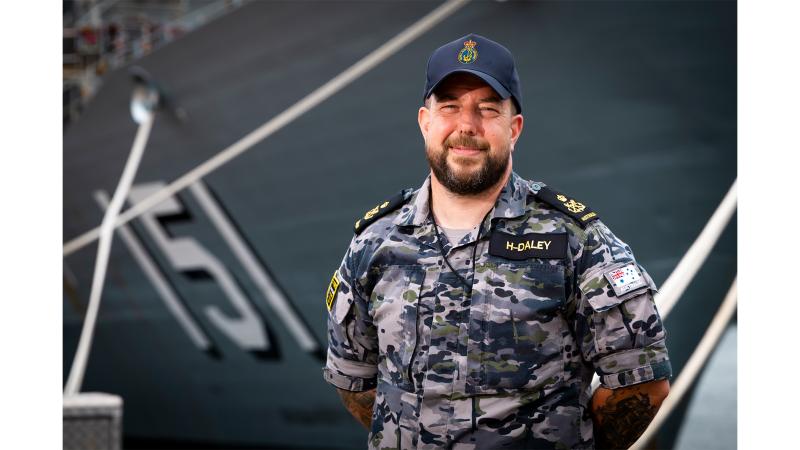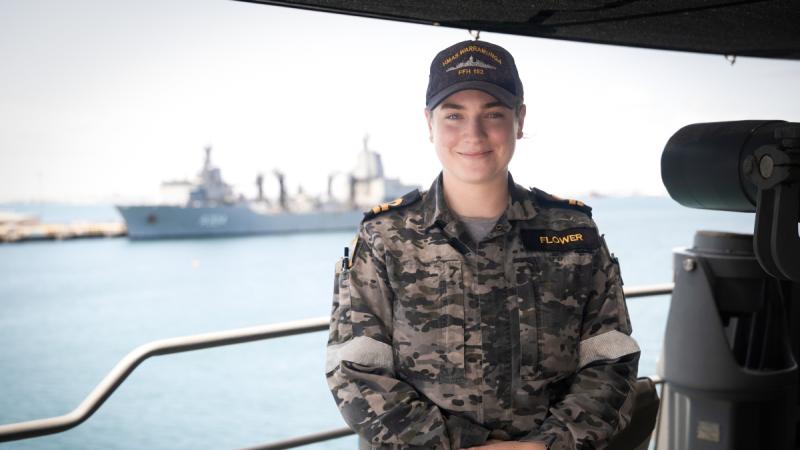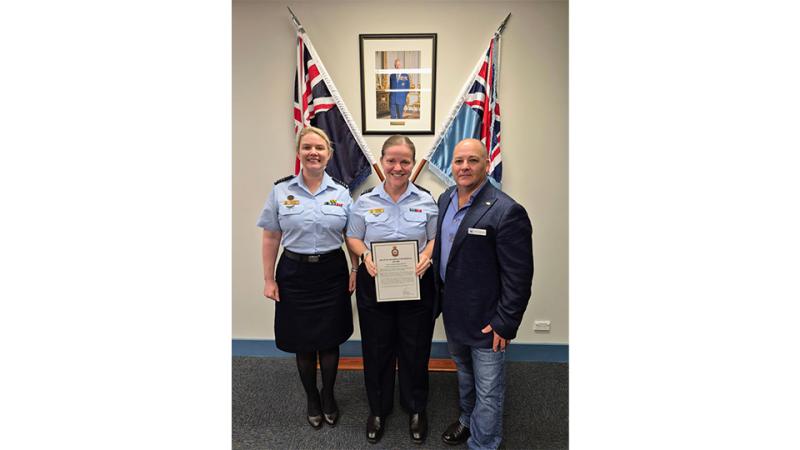10 November 2020
While Lieutenant Damian Briggs has always known he was Indigenous, it is not something he embraced until recently.
In a chance encounter last month at HMAS Albatross, he met Del Bryon and discovered their grandmothers were sisters.
For reasons still a mystery, Lieutenant Briggs’ grandparents had moved from Junee in NSW to Queensland, and never contacted their family again.
“I was signing in for an event at Albatross and was introduced to Del. We started talking and realised the connection. It was incredible,” Lieutenant Briggs said.
While he previously accepted not knowing his cultural group, he now has a place with the Wiradjuri people.
With fairer skin and not growing up with a lived experience in Indigenous culture, Lieutenant Briggs kept knowledge of his background to a select few.
“I always felt like I was not going to belong,” he said.
“Growing up, there was still talk of half-castes, and I was told ‘you’re not really Indigenous’ and ‘you’re one of the good ones’.”
Inspired by his son’s enthusiasm for his Indigenous heritage, Lieutenant Briggs is now on a journey of cultural discovery.
“My son came home from a cultural day at school two years ago beaming with pride,” he said.
“I questioned why I didn’t share my son’s pride.”
Through his role as staff officer Navy Indigenous Affairs (NIA), he aims to help others with their journeys.
About 600 Navy personnel have identified as Indigenous within the Defence human resources system, but only about 100 have self-identified to NIA.
The NIA team is responsible for delivering on Navy’s commitments to the Defence Reconciliation Plan.
“It is about educating people and bringing a greater understanding of Indigenous culture and history to Navy,” Lieutenant Briggs said.
“Some people don’t know about us, and some may think that’s not for me. For others, there could be a fear of outing themselves.
“Maybe some think that by sending a form into us, they are going to be forced to dance in the Bungaree Indigenous Performance Group.”
“In my case, no one needs to see that," he said, laughing.
He said NAIDOC Week was an important celebration.
“NAIDOC week is an opportunity to get everyone − Indigenous and non-Indigenous − involved in celebrating culture,” he said.
“This year’s theme for NAIDOC (Always Was, Always Will Be) resonates with me deeply.
“I am drawn to being outdoors; I am happiest when I am camping or sitting on the back deck of a ship. It calms me.
“I have always been Aboriginal, and always will be.”


